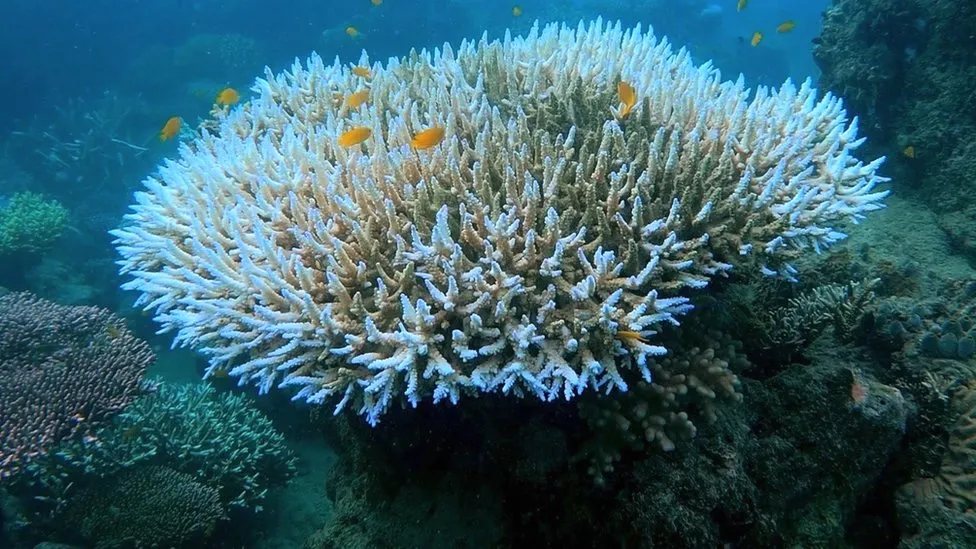Bleached Coral: Global Impact of Rising Ocean Temperatures
1 min read
World’s coral turns white from deadly ocean heat
In recent years, coral reefs all around the world have been experiencing a deadly phenomenon known as coral bleaching. This occurs when the ocean temperatures rise to dangerous levels, causing the coral to expel the algae that lives in their tissues. This algae provides the coral with essential nutrients and their vibrant colors. When the algae is expelled, the coral turns white, a sign that they are under extreme stress.
Climate change is the main culprit behind the rising ocean temperatures, as greenhouse gas emissions trap heat in the atmosphere and warm the oceans. This puts immense pressure on the delicate ecosystems of coral reefs, which are crucial for marine biodiversity and support countless species of fish and other marine life.
Efforts are being made to study and protect these fragile ecosystems, as scientists work to understand the causes of coral bleaching and find ways to mitigate its impact. However, the clock is ticking, and urgent action is needed to reduce greenhouse gas emissions and protect the world’s coral reefs before it’s too late.




